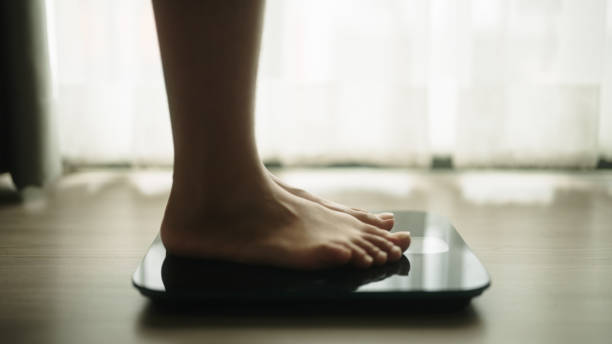What Are the Signs of Unhealthy Weight Loss?
You know that rush you get when the number on the scale finally goes down?
It feels amazing. Like all the effort is finally paying off.
But here’s the truth a lot of people don’t talk about — not all weight loss is healthy weight loss. Sometimes, what looks like progress on the outside is actually your body waving a quiet red flag on the inside.
We live in a time where “fast” has become the standard. Fast food. Fast internet. Fast results. And that mindset slips into our fitness goals too. We want to lose weight quickly, see visible changes quickly, and feel successful quickly. But our bodies don’t run on “quick.” They run on balance, nourishment, and consistency. When we push too hard, the signs of unhealthy weight loss start to appear — often slowly, but unmistakably.
Let’s talk about those signs, what they mean, and how you can get back to a healthier rhythm.
The Hidden Side of Losing Too Fast
One of the clearest indicators of unhealthy weight loss is chronic fatigue. If you’re constantly tired — even when you’ve slept enough — that’s your body’s way of saying it’s under-fueled. According to research from Harvard Health, rapid weight loss often leads to muscle loss and nutrient deficiencies, which cause fatigue and weakness.
When you cut calories too drastically, your body doesn’t just lose fat. It starts pulling from your muscle stores and slows down your metabolism to conserve energy. That’s why so many people hit a “plateau” after a few weeks of extreme dieting. It’s not that your effort isn’t working — it’s that your body’s in self-protection mode.
You might also notice mental fog. Simple tasks take longer. You forget things. Your focus slips. This happens because your brain depends heavily on glucose — its main source of energy. When you don’t eat enough, your brain gets less fuel, and everything feels harder than it should.
When the Body Starts Showing Signs
Then there’s your physical appearance — and I don’t mean just the scale. Unhealthy weight loss often shows up through dull skin, brittle nails, and thinning hair.
That’s because when you’re not eating enough, your body prioritizes survival over appearance. It sends nutrients to vital organs first, leaving less for things like hair growth or skin repair.
And let’s not forget your mood.
If you’ve noticed yourself getting unusually irritable, anxious, or even sad while dieting, it’s not all in your head. Low-calorie diets affect serotonin — a neurotransmitter that helps regulate mood. A review published in the Journal of Psychosomatic Research found that restrictive diets can increase stress and emotional instability. In simpler terms: when you starve your body, your mind suffers too.
Hormonal changes are another subtle but serious effect. For women, irregular periods or complete cycle loss (known as amenorrhea) can happen when body fat drops too quickly. For men, testosterone levels can decrease, leading to low energy and reduced motivation. Both are warning signs that the body’s hormonal balance is off.
What Research Really Says About “Healthy” Weight Loss
Research consistently supports slow, steady progress over quick fixes. The CDC recommends aiming for about 1–2 pounds of weight loss per week — enough to make a difference without shocking your body.
Studies show that gradual weight loss is more likely to preserve lean muscle and maintain long-term results. On the other hand, extreme calorie cuts often backfire, leading to what’s called “metabolic adaptation” — a fancy term for your metabolism slowing down to protect you from starvation.
So even if your scale number looks great today, you could be setting yourself up for rebound weight gain tomorrow. That’s why sustainable methods matter — not just for how you look, but for how you feel, think, and live.
Listening to Your Body (Not Just Your Mirror)
Healthy weight loss feels different. You wake up with energy. You can focus during the day. Your workouts leave you feeling strong, not drained. Your relationship with food improves instead of becoming restrictive or stressful.
Unhealthy weight loss, on the other hand, usually comes with symptoms like:
- Feeling tired even after resting
- Constant hunger or irritability
- Dizziness or brain fog
- Thinning hair or brittle nails
- Digestive problems or constipation
- Loss of muscle tone
- Sleep disturbances
If any of that sound familiar, it might be time to re-evaluate your routine. That doesn’t mean giving up your goals — it just means working with your body instead of against it.
Start by reintroducing balance. Add protein to every meal. Choose complex carbs instead of cutting them out. Drink enough water, and don’t skip meals. You’d be surprised how much energy returns once your body feels safe again.
A Realistic Reminder
It’s easy to forget that your body isn’t a machine. It’s a living, responsive system that wants to protect you. When you give it too little for too long, it adapts in ways that make long-term health harder.
Real transformation isn’t about speed — it’s about sustainability. It’s about feeling stronger every day, not just smaller.
So, the next time you’re tempted by a “drop 10 pounds in a week” promise, ask yourself: What will that cost me? Because if the cost is your energy, your peace of mind, or your health, it’s not worth the trade.
Healthy weight loss takes patience, care, and awareness — and the payoff lasts much longer than any crash diet ever could.
In my next post, I’ll break down how to tell whether your weight loss is fat or muscle — and how to make sure every pound you lose brings you closer to feeling your best, not worse.










0 Comments
Hey! Leave A Comment or A Question
Emoji